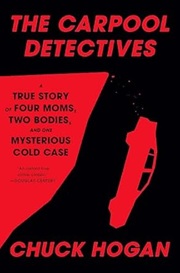
| Mon
Book Info
Subscribe
| |||
Dear Reader, Is vacation over? This is what happens when I take a staycation. Where did the time go? I hope you enjoyed the Summer Fun Recipe Week. Have you tried any of the recipes? Are there any you are saving to try later? I have one more recipe to share, sent in by Devon M. "Hi, Suzanne, this is one of my summer favorites. I like it best with plums, peaches, and blueberries. Enjoy!" Fresh Fruit Galette Prepare a single pie crust and roll out to about 13 inches in diameter. Do not trim. Place on baking sheet and set aside. (A refrigerated pie crust also works fine.) Adjust oven rack to lowest position and heat oven to 400 degrees 1 package (8 oz) cream cheese, softened Mix cream cheese, powdered sugar, 2 Tsp cornstarch, and the egg yolk in a medium bowl. In a separate medium bowl, mix fruit, 2 Tsp sugar, remaining Tsp cornstarch, and vanilla or almond extract. Spread pie crust with cream cheese mixture, leaving a 2 inch border. Spread fruit mixture evenly over cream cheese. Fold pastry border over the fruit. (Fold the couple inches without cream cheese over the fruit. It looks rather rustic– there will be small folds and uneven places and that's ok–it's not a 'fancy' dessert.) Brush dough edge with egg white and sprinkle with sugar. Bake until golden brown and bubbly, about 30 minutes. Cool slightly and serve warm. Serving cold for breakfast is also wonderful. Thanks for reading with me. It's so good to read with friends. Suzanne Beecher P. S. This week we're giving away 10 copies of the book THE CARPOOL DETECTIVES by Chuck Hogan. Click here to enter for your chance to win. | |||
The Carpool Detectives | |||
|
Angela felt like a ghost walking through her own home. As evening fell, she paused to gaze out the window at the orange tree in the yard and the plants she'd carefully tended. Is this the last time I'll see my garden? Her husband, Joel, had informed her a few days ago that they were losing the house. They'd been on the brink of financial collapse before, but this time felt different. The business was down and he had fallen deeply into debt again. "I'm sorry," he'd told her. He had been able to right things before, but now they were in their late sixties and their timeline was short. Angela tried to be hopeful, tried to remember the faith she'd always had in Joel. He'd always been able to find a way. Last night, though, he'd come home from work reeking of alcohol, despite swearing he had put all that behind him. She looked at her husband of over forty years and, for the first time, saw not the man she wanted to see, but the man who was really there. She saw that Joel was scared. In the years since the kids had grown up and moved on, Angela's world had become progressively smaller and simpler, while Joel's became more complicated in ways she didn't fully understand. Now, looking out at her garden, the small patch of earth that meant so much to her, she wondered whether she should have wanted more for herself. She'd relied on Joel to take care of everything, including their finances, and in doing so, she had allowed her fate to become inextricably tied to his. The orange tree caught a shaft of moonlight as she thought back to the other things she'd been trying to block out since he told her about the debt. Secretive telephone calls. Late night drives. Something was very wrong—she knew that now. Were she another person, and they another couple, she'd have confronted him the first time she'd woken up in the middle of the night to find his side of the bed empty, his car missing. She imagined yelling at him, demanding he tell her what was going on, but then she pictured his rage and felt a twist of dread. Instead, she stayed at the window in the falling darkness, fear coursing through her as she saw headlights sweep into the driveway. What was going to happen to them? 'What have you done, Joel?' THE BEGINNING Marissa was so bored. She was sitting in a college classroom, enrolled in a continuing education course promising an introduction to television journalism. The coursework she thought would be compelling involved viewing unedited B-roll footage to be inserted into news reports: filler, such as a police officer unspooling yellow caution tape around an accident scene or a bored public official giving a canned press briefing or bib-wearing walkers participating in a charity 5K. She had signed up for night school to study investigative journalism, determined to follow her passion a decade after leaving a career in forensic accounting to become a full-time parent. She thought she would be learning how to tell exciting and impactful stories, not compose boilerplate local interest pieces. What she did not expect was that she would view a piece of film that would alter the trajectory of her life. The soundless footage showed a red Skyhook helicopter hovering low inside a deep canyon. From massive straps hanging from the bottom of the helicopter, a wrecked SUV dangled slowly, corpse-like, beneath the rotorcraft, high above the hilly forest. Marissa sat up in her seat. Something about the footage captivated her. The helicopter set the vehicle gently down on the roadside, its long straps slackening and then, released, collapsing to the gravel around the SUV. Sheriff's deputies and California Highway Patrol officers surrounded the vehicle, which had been damaged almost beyond recognition. The location of the retrieval was not identified, but it was familiar to Marissa. California State Route 2 ran from the Pacific coast in Santa Monica—near where she lived now—east and north through the San Gabriel Valley and up into the rugged mountains of the Angeles National Forest. Marissa used to hike in that area on summer day camp excursions when she was young—running barefoot with friends, catching frogs, a world away from the tension and dysfunction of her home. What followed chilled her. To demonstrate how dry footage was incorporated into the finished product, the instructor played the actual news segment as it had aired in August 2006. "Accident Investigated as Double Homicide." The costly helicopter retrieval had been performed after the vehicle had lain at the bottom of a ravine for more than a year. The report raised so many questions in Marissa's mind. Why wait so long to bring it up? How could a one-car accident be a double homicide? And—had this crime ever been solved? For the first time in that class, she was paying attention. The segment included a still image of a Los Angeles County Sheriff's Department "Information Wanted" poster showing driver's license photographs of a man and a woman, Joel and Angela Watkins,* an older married couple who looked so ordinary, so everyday, so 'anyone—'Marissa could not get the image of the two victims out of her mind. She had recently renewed her driver's license, and it had not occurred to her that the resulting image could, in the event of a crime, be the image that forever defined her. She thought of the two victims running errands that forget-table day, putting up with the inconvenience of going to the Registry of Motor Vehicles, another chore in another day of comings and goings—until it all stopped. Stopped forever. The couple were close to Marissa's parents' ages, and something about their expressions seemed familiar to her, looking so normal, and yet at the same time she detected tension in their faces— similar to the tension she'd known in her own parents. Who would want to murder this older couple, and why? This was in early 2020. Marissa had found herself at one of life's crossroads. For more than a decade, motherhood had defined her life. Marissa always wanted to be a mother, and she and Brian had married young, at twenty-five, planning to start a family almost right away. But just thirteen weeks into her first pregnancy, after hearing the fetal heartbeat and watching the little bean move on the ultrasound, she suffered a devastating loss. She woke up covered in blood and miscarried shortly after. Six months later, she suffered another miscarriage. She was distraught. Of all her plans, hopes, and dreams in life, becoming a parent was one thing she had simply taken for granted. Ultimately, she picked herself up and they tried again, this time seeking the help of a reproductive endocrinologist. She did everything she was supposed to—ate wholesome organic foods, got regular exercise—while avoiding everything she was supposed to— coffee, alcohol, deli meats, unpasteurized cheese. So when her daughter was born and placed in her arms, healthy and wailing, her joy was beyond what she'd ever known. Halfway through her maternity leave, Marissa knew there was no chance she would go back to work. Two years later, her second daughter arrived, and the family she once feared might not materialize now felt complete. She loved being a mom. Marissa's childhood had been tumultuous at times, such that much of her approach to parenting was an attempt to compensate for what she felt had been lacking in her own upbringing, devoting herself to giving her girls everything she could. Brian worked in advertising for a major movie studio, and for most of their thirties he worked long hours in order to establish himself professionally. Marissa's career in forensic accounting had never felt like her identity, while being a full-time mother did. It was the most fulfilling and rewarding job in the world—until it wasn't. Now, her girls were eleven and nine, the ages when children first show signs of becoming their own selves. The oldest was a typical first child, a perfectionist, somewhat anxious, endearingly empathetic. The youngest was shy, but also brave, exactly as Marissa had been as a child. She and the girls were particularly close, and she was proud of that. Marissa still felt needed, and with adolescence on the horizon, she understood that as a mother she had a long, long way to go. But she was no longer their entire world. The days of swinging her kids around or playing tag were fading. Her daughters were blossoming and no longer required one hundred percent of Marissa's focus and energy. Being on the cusp of forty had something to do with it as well. With both girls now in school for much of the day, Marissa began considering the second half of her life. She threw herself into school-focused volunteer work, ultimately becoming president of the parent association and overseeing the class fundraisers. While this work was important and challenging in its own way, it did nothing to fill the void she was feeling. (continued on Tuesday) Love this book? Share your review with the Publisher
| |||
| Mon Book Info | |||

